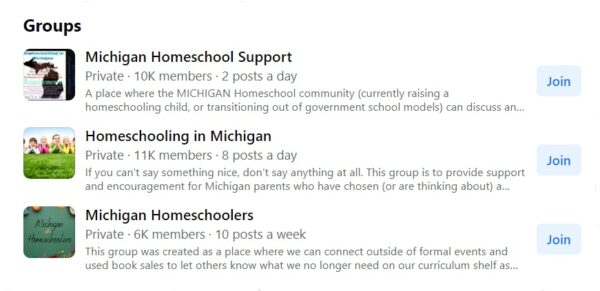Starting Your Own Homeschool Co-Op
How to start a homeschool co-op.
Homeschool cooperatives (“co-ops”) are a fantastic way to bring the skills and resources of other families together to maximize the benefits of homeschooling. If you’ve been around homeschoolers, you’ve probably heard lots of talks about co-ops.
What is a cooperative?
A homeschool co-op is an organization established for the mutual assistance of its members; it is owned or run by its members, who partake in the benefits. Instead of hiring an outside organization to provide services, cooperative members organize themselves to provide these services. It is a way to leverage the power of numbers by drawing on the skills and labor of the participants.
In an educational setting, a cooperative is when families organize themselves to provide for their children’s education. In traditional institutional education, families entrust their children to a school system for their education. In a homeschool co-op, the families become the school. Teachers are drawn from the participating families based on the knowledge of the members. For example, you might feel comfortable teaching algebra, but if you band together with a group of ten other families, the chances increase that someone in the group is able to do so.
Resources are also drawn from the member pool. One member might have a large spare room that can serve as a classroom for students; another parent might have a large van and the free time to pick children up from various families and bring them to the co-op. Still, another might have a Costco membership that enables the co-op to acquire bulk food at reasonable prices.
Necessary Parts of a Homeschool Co-Op
Homeschooling co-ops can look very different depending on their size, organization, and purpose. However, they all share a few necessary elements.
Membership fee. Some homeschooling cooperatives have a membership fee paid by participants, either per child or per family. The fees are used to cover co-op expenses. In larger cooperatives, the cost becomes tuition that is used to defray the overhead of running a large organization, but it need not be so; it can be as simple as each family chipping in $10 each week to buy pizza for a group of six kids.
Volunteer commitments. Homeschool co-ops only work when each member contributes something to the endeavor. Most homeschooling cooperatives have some sort of volunteer obligation that is agreed to by all members. At a co-op where I used to teach, parents took turns volunteering for lunch duty and after-school cleanup. At other co-ops, every parent is expected to actually teach a class or serve as an assistant to a teacher. Member volunteer commitments are sometimes formalized in an agreement that families sign when joining.
Familial oversight. In any homeschool co-op, the families themselves are the authority. The families decide on the curriculum and texts. The families choose who will give instruction. The families determine what, if any, guidelines there will be pertaining to dress code, behavior rules, etc. This remains true even if the families hire outsiders for professional expertise. For example, a growing co-op may find that they need to hire an outside “Headmaster” to handle administrative duties; some co-ops use their funds to hire outside tutors to provide instructors in specialized fields, like Latin or chemistry. However, the delegation of duties to professional help should not obstruct the fact that the families themselves are the final authority; a cooperative is, by its nature, a member-directed enterprise. It ceases to be a co-op if the families no longer have a say in how things are managed.
Finding Your People
Perhaps the most necessary thing in starting a homeschool co-op is finding participants. Once you settle on starting a co-op, how do you find your people?
First, think small. Some homeschool cooperatives are huge, but none of them started that way. They all began with a few families with a common vision banding together to better their children’s education. So start with just finding one or two families! Jesus said, “Where two or more are gathered in my name, I am there in the midst of them” (Matt. 18:20). We could adopt a parallel philosophy for our cooperative: “Where two or more families are gathered to learn, a co-op is there in the midst of them.”
Second, utilize the parish network. You are likely to meet other interested families through local parishes. If you don’t really know anyone, ask your parish priest if he is aware of any other Catholic homeschooling families. Hey, go to the park on a school day and see which parents are out there with their kids; chances are they are homeschoolers.
Third, use social media. You have understandable reservations about getting on social media—and honestly, I understand! You don’t need to become a social media aficionado. But if you are really having trouble finding like-minded families, consider signing to take advantage of the homeschooling groups that pop up on social media. Facebook had tons of online homeschooling groups organized geographically. For example, simply typing in “Homeschooling groups” to the Facebook search yields the following results:

Your results will obviously be different depending on where you live, but the point is that there are a ton of people out there online chattering about this subject. Used judiciously, social media can be an excellent way to find other like-minded people.
Homeschool Connections also has a social media community called…the Community. The HSC Community is for homeschoolers who specifically use Homeschool Connections, but it is a fantastic way to network and there are tons of general homeschooling tips shared as well. There is also a similar community for Catholic homeschoolers at large here: Catholic Homeschool Community.
Quantity vs. Quality
Finally, vet your people. There is a temptation when starting a co-op to value quantity over quality—to think, “In order for this to be successful, I need at least X families.” And so, in the interest of hitting your family quota, you partner with families whose vision might not be the same as yours or whose behavior throws up red flags. Don’t do this. Focusing on quantity over quality is a recipe for trouble down the line.
Anyone who has ever organized a co-op will tell you that it is much better to have a smaller co-op with families that work well together rather than a larger co-op with division. Most co-ops do not just admit anyone who asks; they have a meeting to get to know the family and see if that family’s vision aligns with their own; in other words, to see if they are “the right type of people” for what you are doing. You don’t want to just accept any warm body. Be content to wait for people who share your vision for the group.
Be Innovative!
Using the basic principles I have outlined above, there’s really no limit to what you can do with a co-op! You can form a structured classical liberal-arts-focused curriculum using the Great Books or have an informal gathering of families to watch Homeschool Connections courses on recording followed by pizza. You can form a co-op just for extracurricular activities, like sports or theater. You can even adopt a hybrid model where some education occurs in the co-op, some through traditional homeschooling, and some using online courses like HSC. A successful cooperative is meant to expand your options, not limit them. So be innovative!
What are your thoughts on this topic? To continue the discussion, join me and other homeschooling parents at our Homeschool Connections Community or our Facebook group!






